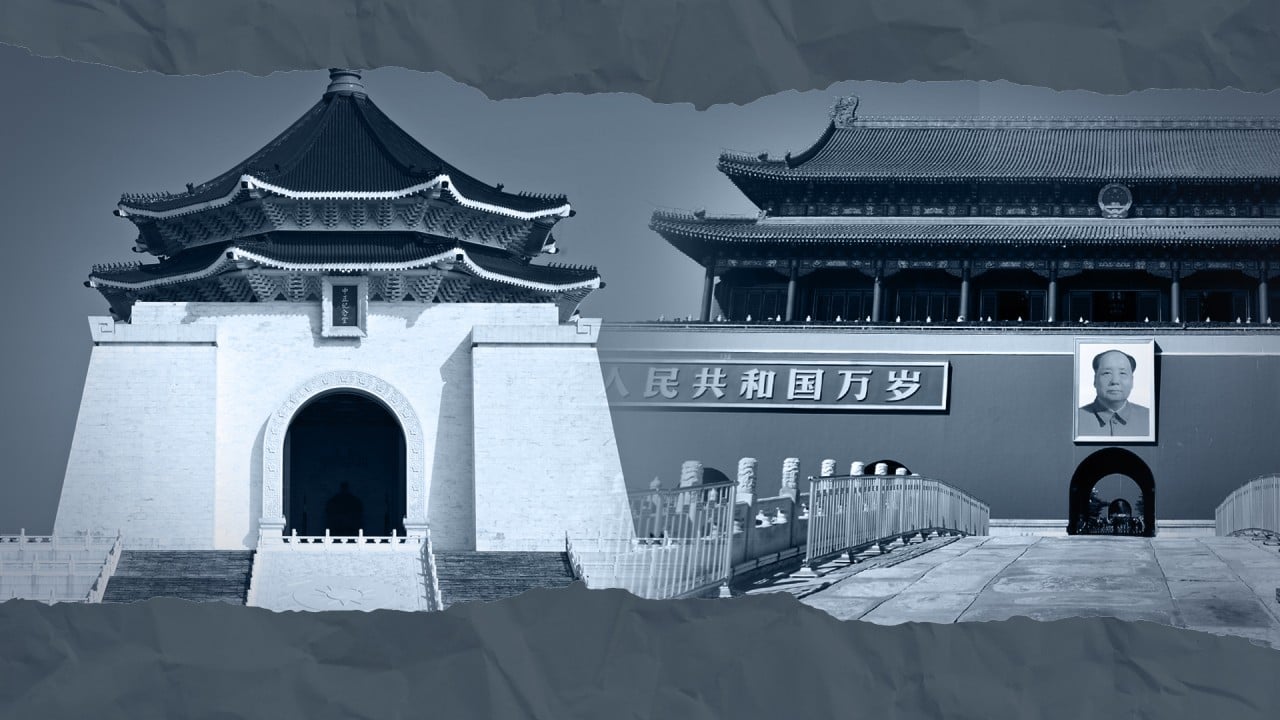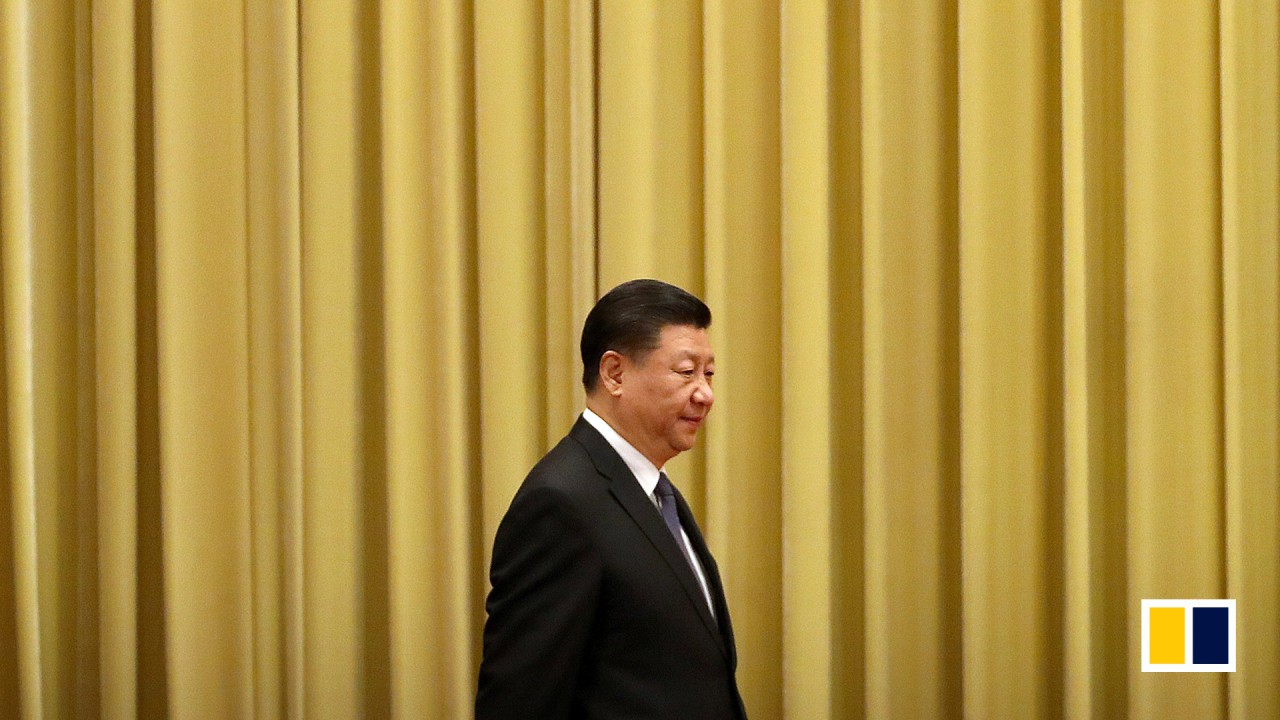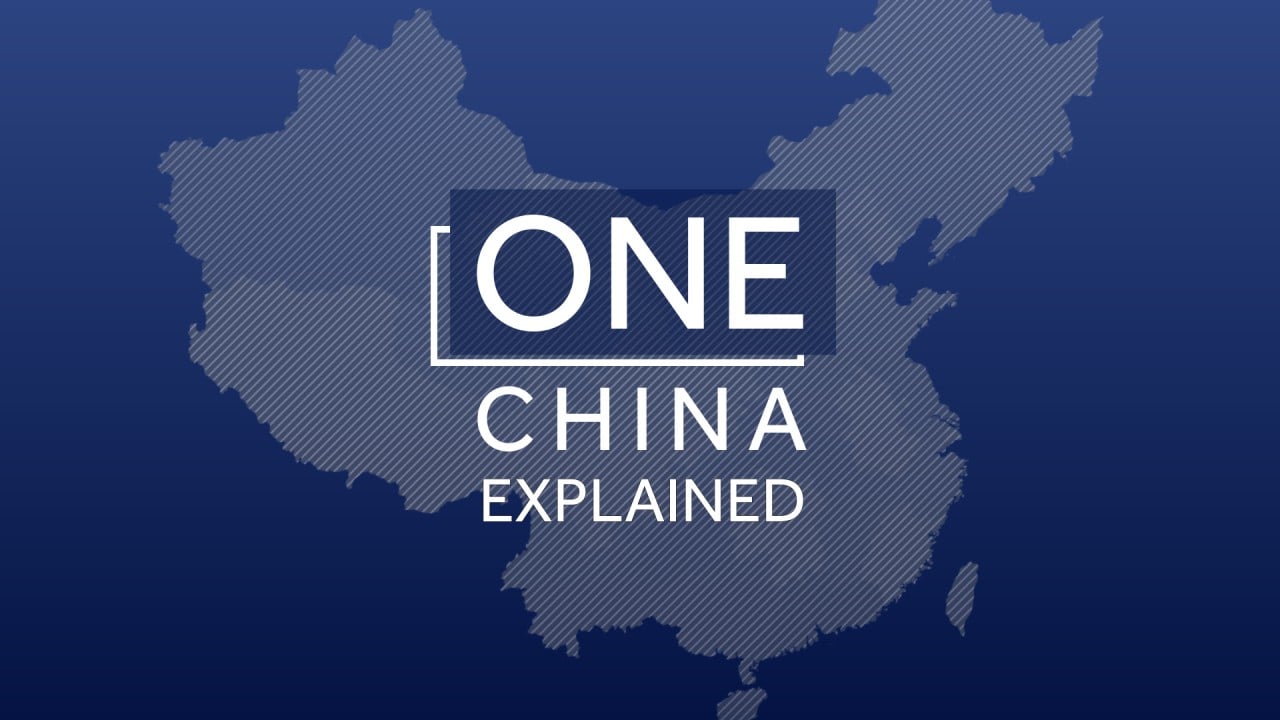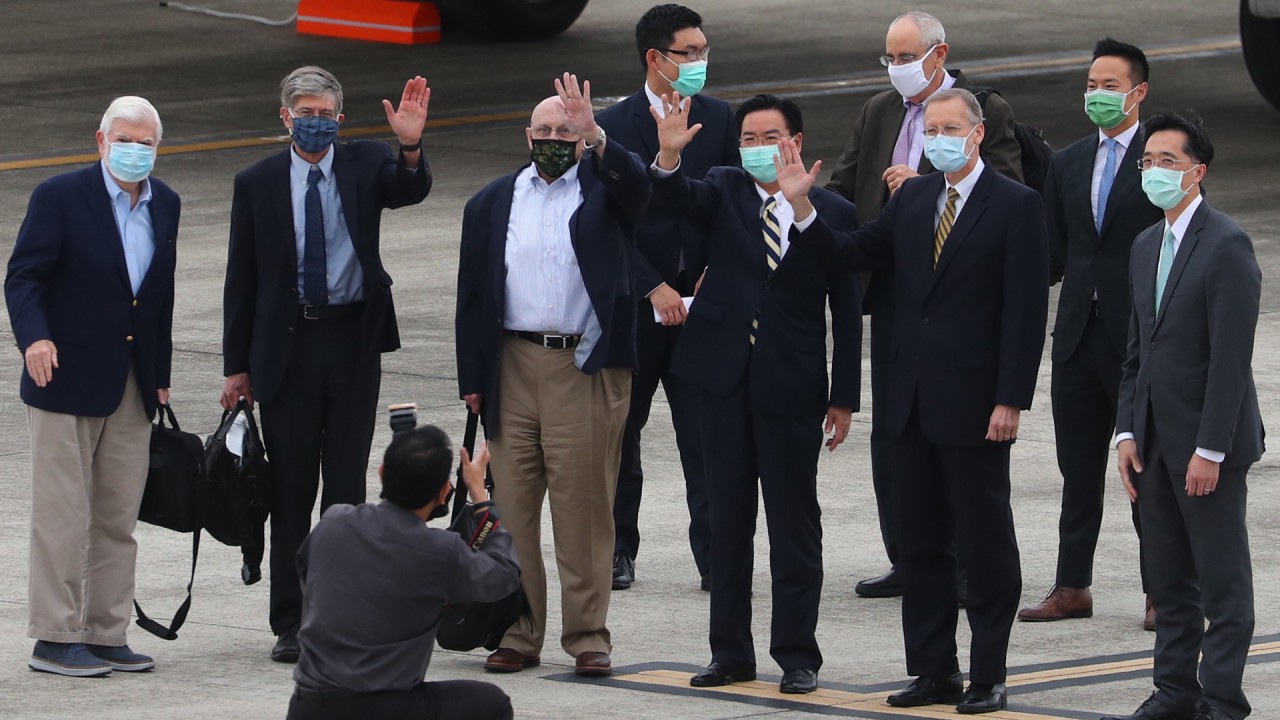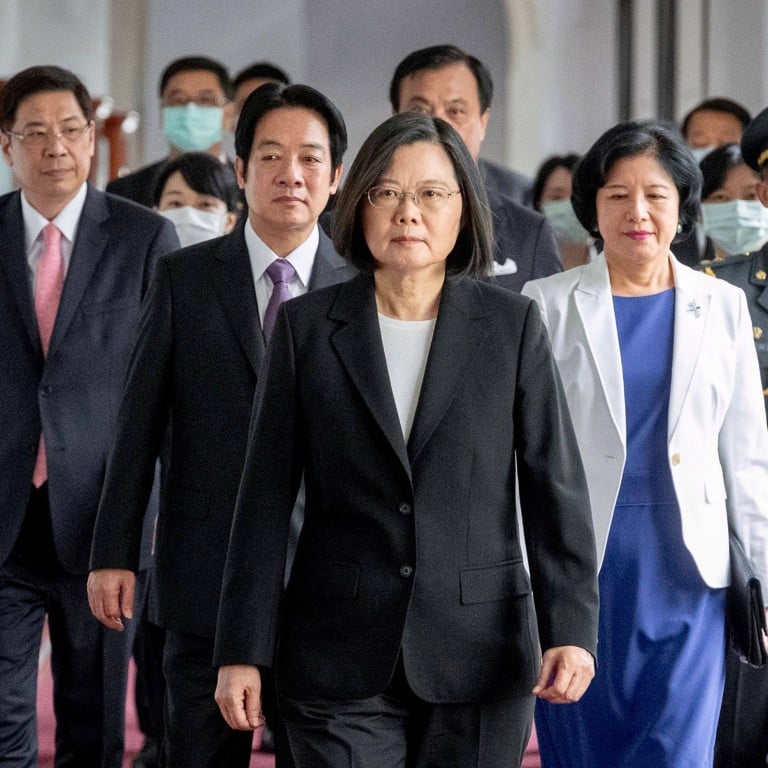
Explainer | How Taiwan’s relations with mainland China have changed under president Tsai Ing-wen
- Relationship between Taipei and Beijing has gone from friendly to frosty since 2016, as Washington ties grow warmer
- First milestone in the downward spiral was Tsai’s unprecedented conversation with then president-elect Donald Trump
US should help Taiwan prepare for irregular war, hearing told, but experts fear destabilising region
China regards the island as a breakaway province, separated due to civil war, and has said it will reunify the island by force if necessary. However, the United States sees the island as a de facto ally and has promised to support its self-defence capability.
Here are some of the key milestones in the cross-strait relationship since Tsai took office.
May 20, 2016: Tsai’s inauguration
December 1, 2016: Tsai calls Trump
March 17, 2018: Taiwan Travel Act
January 2, 2019: Xi calls for dialogue
Chinese President Xi Jinping says both sides of the Taiwan Strait should begin talks on reunification to end decades of animosity. He is the first head of state in China to openly call for such a political dialogue, but his proposal is met with robust criticism from Taiwan.
July 9, 2019: US approves arms sale to Taiwan
July 11, 2019: Tsai visits the US
September 20, 2019: Taiwan loses Kiribati
Tsai says it is “a big mistake” for the Pacific country to give up on a sincere friend and become “China’s chess piece”.
April 9, 2020: China stops student exchanges
Taiwan scrambles for vaccines after Covid-19 breaches its defences
May 20, 2020: Tsai’s second term starts with military threat
September 17, 2020: Chinese aircraft patrol Taiwan Strait
Risk of Taiwan Strait conflict ‘at all-time high’, Beijing-backed think tank says
October 8, 2020: Clash in Fiji
China’s embassy says the Taiwanese staffer “acted provocatively against the Chinese embassy staff who were carrying out their official duties in the public area outside the function venue”, causing injuries and damage to a Chinese diplomat.
Taiwan denounces mainland China for ‘brutal and irrational actions’ after spat in Fiji ends with worker in hospital
October 22, 2020: US approves another arms deal to Taiwan
Beijing maintains US arms sales to the island severely damage its sovereignty and security interests.
April 10, 2021: US-Taiwan diplomatic relations step up
The US State Department issues a new guideline encouraging diplomatic engagement with Taiwan, a move welcomed by the island. The same month, the US embassy in France invites Taiwan’s envoy to a meeting, marking a first since 1979 when the US broke off diplomatic relations with Taipei.
June 6, 2021: Military vaccine delivery
In August 2020, nationalist state media tabloid Global Times said in an editorial that the “time would be mature for Beijing to strike the island once a US military plane lands in Taiwan”.


